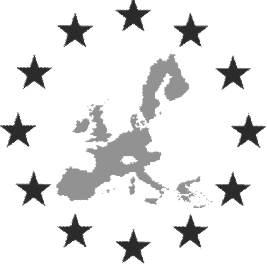
|
|
Simulation in Europe
|
|

|
|
|
SiE
|
ESPRIT Basic Research Working Group 8467
Simulation for the Future: New Concepts, Tools and Applications
|
Keywords:
simulation technologies, multi-paradigm modelling, solvers, standards,
interoperability, industrial deployment, demonstrators, user-simulator
interfaces
http://hobbes.rug.ac.be/SiE/
Contact Point (how to get in touch)
Welcome to the SiE-WG/SiE-SIG homepage
What are SiE-WG and SiE-SIG ?
SiE-WG is an ESPRIT
Information Technology Basic Research Working
Group sponsored by the European Union.
As an initiative of the SiE-SIG (Special Interest Group), the Working
Group brings together industries, academia and end-users
involved in the development as well as use of modelling and
simulation. The SIG with its (currently) 200 partners acts as an
external steering and validation organism for the Working Group. SIG
contributions vary from using Working Group results, over validation
of Working Group activities, to active participation in the Working
Group research.
SiE starts from the basic premise that modelling and simulation
methodologies, techniques and tools are generic in nature and
enable complex problem solving in diverse domains.
SiE is not a simulation society (such as EUROSIM, SCS, ...)
but rather a collection of partners interested in and willing to
actively contribute to the advancement of modelling and simulation
technologies. Given this aim, SiE's active members are not limited to
Europe, but span the whole world (though
sponsoring is only available within Europe).
What is the mission of SiE ?
- To identify current and future needs in modelling and
simulation with as a final aim to improve the overall quality of
end-user products.
- To perform and coordinate Basic Research in key areas to
improve future end-user applications.
- To validate research results in real-life applications.
- To initiate standardisation of model representation and
modelling and simulation processes to achieve "plug and play"
interoperability of models and simulators.
- To disseminate information about state-of-the-art,
standardised modelling and simulation methods, techniques and tools.
Who are the SiE partners ?
We are currently putting the SiE database online. It will allow
one to search for SIG and WG members with particular interests.
For the time being, the following are (rather chaotic)
textual dumps of the old database (August 1996).
Here, you can become a member of the
Special Interest Group SiE-SIG and register your interest in
particular SiE activities.
Activities
The log of all SiE's activities since it's inception has not yet
been put online. If you are interested in the 2 reports on the
focussing phase of SiE's operation, send e-mail to
SiE@hobbes.rug.ac.be.
The focussing phase has led to a list of Action Clusters, consisting
of related, concrete Research Actions. Here is a
short description
of SiE's history (gzip'ed, PostScript, 6 p.).
Currently, SiE-WG is organising a
workshop in Gent, Belgium (November 29-30)
on all the Actions, the writing of a "White Book"
and the inception of a
Network of Excellence in Simulation Technologies.
Here is
an overview and short descripton of the Research Actions
with the e-mail addresses of the Action Leaders.
Here is
the list of all Action Clusters and Actions with pointers to
their home pages.
This area is very much under construction and more information
about the activities of the different Actions is put
online regularly.
Miscellaneous Modelling and Simulation Information
The following
is an attempt to gather and structure information
related to the broad subject of Modelling and Simulation.
We strongly believe in a set of generic methods and
techniques and corresponding tools which can be employed
to study (analyse, design, control) complex systems.
These methods and techniques are generic
in the sense they are quite independent of a particular
application.
Apart from the diverse application domains where it can
enable safer, better, ... solutions, Modelling and Simulation
also draws on different fields of research such as Computer Science,
Systems Theory, Formal Semantics, Artificial Intelligence
and Control Theory to provide its generic methods, techniques
and tools.
Please contribute by
sending us comments regarding needs of the Modelling and Simulation
community as well as interesting URL's.

